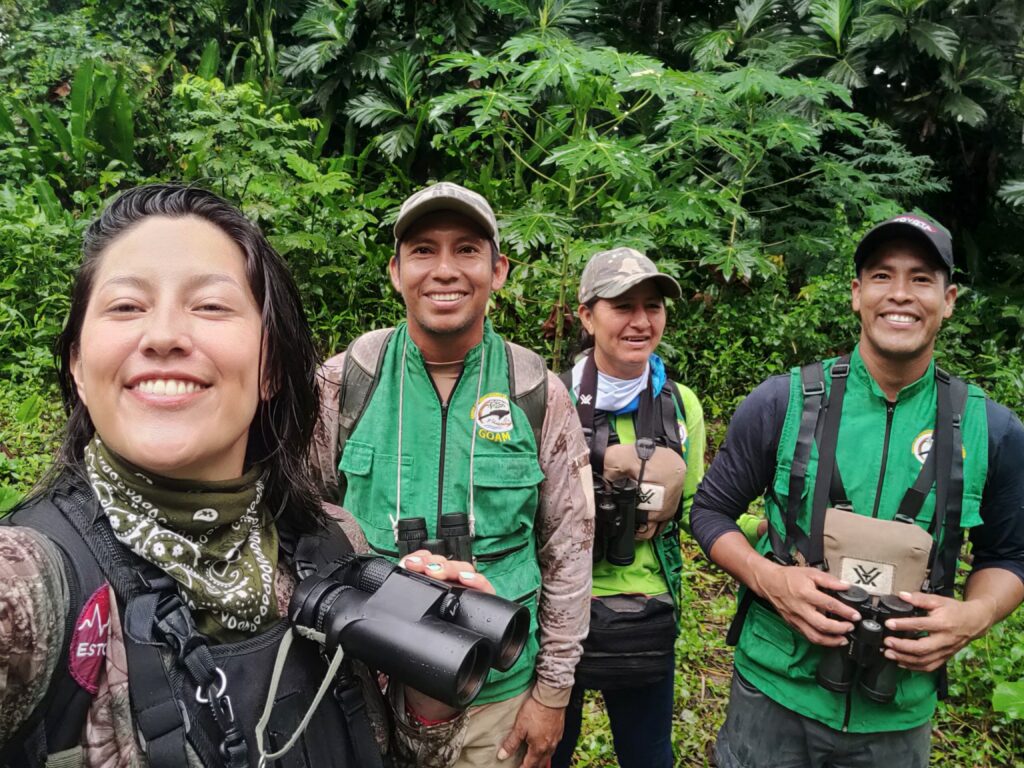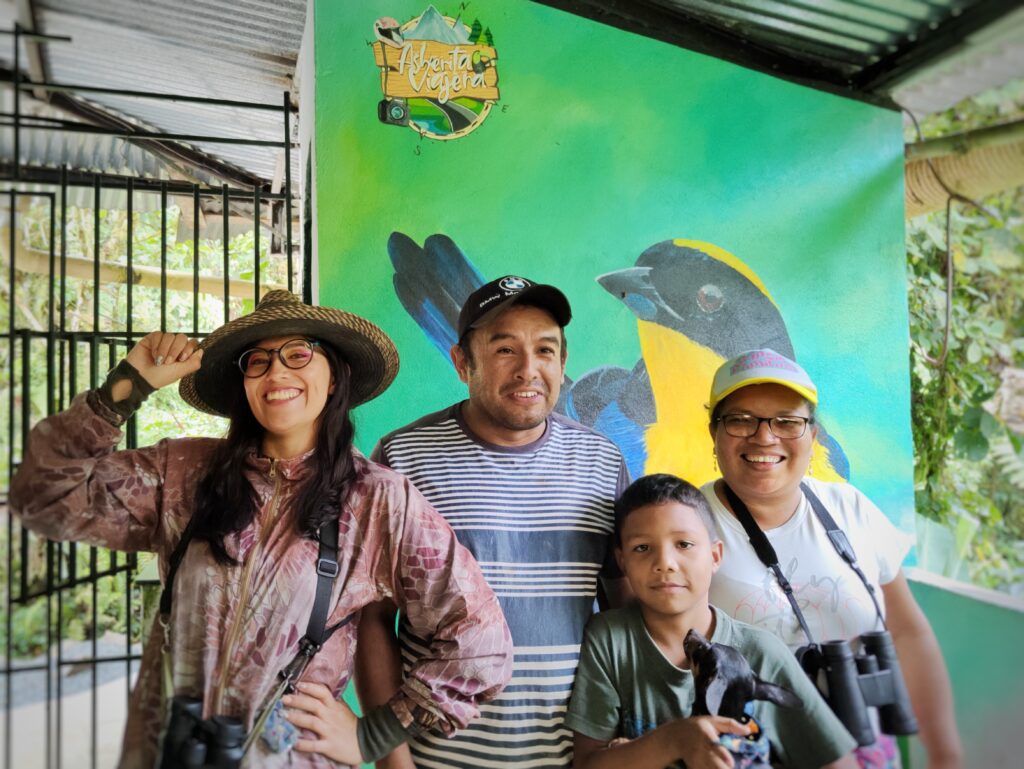Bird community-based tourism is not just a recreational activity; it’s a vital tool for conservation and a catalyst for socio-economic development. This form of responsible tourism leverages the allure of bird watching to generate positive impacts on local territories, benefiting both the environment and the communities. Here’s a look at how this approach fosters sustainability and prosperity.

Economic Benefits and Money Flow
- Sustainable Income Generation:
Bird watching attracts a niche market of eco-conscious tourists willing to spend on guided tours, accommodations, food, and local crafts. This influx of revenue creates a sustainable income stream for local economies, often providing more stable financial foundations compared to traditional agriculture or extractive industries. - Micro and Small Enterprises:
The tourism industry encourages the establishment of micro and small enterprises. Local entrepreneurs can start businesses ranging from bird guide services to eco-lodges and handcrafted souvenirs. Artists, sculptors, and craftsmen can create bird-related art and souvenirs, honoring the region’s biodiversity while sensitizing visitors to the importance of conservation. This diversification of income sources helps reduce economic vulnerability.
Employment Opportunities
- Local Guides and Experts:
Bird community-based tourism necessitates knowledgeable guides who are familiar with local avifauna. Training programs can equip locals with the skills needed to become professional bird guides, providing well-paying jobs that also enhance their understanding and appreciation of biodiversity. - Supporting Services:
Beyond guiding, the tourism industry creates a demand for various services, including transportation, food and beverage, and hospitality. Local residents can find employment in these sectors, often without needing to leave their communities.

Educational Advancements
- Environmental Education:
The presence of tourists and their interest in wildlife can inspire local schools to integrate environmental education into their curriculums. Children learn about the importance of biodiversity and conservation, fostering a generation that values and protects their natural heritage. - Skill Development:
Exposure to tourists from different backgrounds provides an informal yet powerful educational experience. Locals, especially children, can improve their language skills and cultural awareness, enhancing their personal development and future employability. - New Educational Programs:
Public and private educational institutions are increasingly offering specialized programs in nature studies, wildlife guiding, birding, herpetology, and other related fields. These programs are designed to equip both new generations and existing professionals with advanced knowledge and skills. By fostering expertise in areas such as ecological conservation, species identification, and sustainable tourism practices, these programs help create a cadre of well-informed guides and conservationists who can lead and innovate in the field of eco-tourism.
Cultural Awareness and Connection
- Ancestral Knowledge Preservation:
Bird watching tours often include narratives about the cultural significance of birds and their habitats. This sharing of ancestral knowledge helps preserve and revitalize cultural heritage, ensuring that it is passed down to future generations. - Tourist Engagement:
Responsible tourism creates opportunities for meaningful interactions between tourists and local communities. Visitors gain a deeper appreciation for the local way of life, fostering a sense of respect and support for conservation efforts. This connection can lead to long-term advocacy and financial support for conservation projects. - Cultural Heritage and Learning:
Tourists have the opportunity to connect with cultural heritage while traveling, deepening their understanding of the local history and traditions. For local guides and tour leaders, accompanying tourists provides a unique chance to learn about new territories, exchange knowledge with other local guides, and enhance their skills. This networking and knowledge sharing helps build a community of informed and skilled guides who are better equipped to offer enriching experiences to tourists.

Environmental Stewardship
- Conservation Funding:
Tourism revenue is being redirected towards conservation initiatives, such as habitat restoration, anti-poaching efforts, and biodiversity research. For example, «Avistamiento de aves Doña Dora» in Dagua, Valle del Cauca, demonstrates this approach. Here, a local family has been protecting the toucan barbet by keeping the family observed while they live in their backyard, attracting bird tourists who visit them. These activities are crucial for maintaining the health of ecosystems and the species that inhabit them. - Sustainable Practices:
As tourists seek out eco-friendly experiences, communities are encouraged to adopt sustainable practices. This includes everything from waste management and energy use to sustainable agriculture and water conservation, promoting a holistic approach to environmental stewardship.
Conclusion
Bird community-based tourism is a powerful model for conservation and community development. By providing economic benefits, job opportunities, educational advancements, and fostering cultural and environmental awareness, this approach not only protects biodiversity but also enhances the quality of life for local communities. Responsible tourism is thus a win-win for both people and the planet, demonstrating that conservation and development can go hand in hand.
Engaging in and promoting bird community-based tourism is a step towards a more sustainable and prosperous future, where both nature and humanity thrive in harmony. I invite you to book a customized birding trip with me, Asherita Viajera, as I tirelessly work to create awareness using social media and aim to become a bridge between those seeking unique experiences and local communities that lack the tools to reach that public. Help make this purpose a reality by sharing this content and following me on all social media platforms as @asheritaviajera. Together, we can support conservation and enrich lives through responsible tourism.
No responses yet